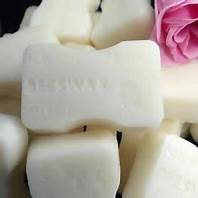Anti-ageing gene injections could rewind your heart age by 10 years
![]()
![]()
![]()
![]()
![]()
![]()
![]()
![]()
![]()
![]()
![]()
![]()
![]()
Anti-ageing gene injections could rewind your heart age by 10 years
Injecting the genes of so-called “super-agers” into failing heart cells regenerates them, making them function as if they were 10 years younger, scientists have found.

The discovery opens the door for heart failure to be treated or prevented by reprogramming damaged cells.
Researchers have long suspected that people who live beyond 100 years old must have a unique genetic code that protects them from the ravages of old age.
Previous research showed that carriers of a variant of the BP1FB4 gene enjoy long lifespans and fewer heart problems.
In new experiments, scientists from the University of Bristol inserted the gene variant into a harmless virus and then injected it into elderly mice. They found that it rewound the heart’s biological clock by the human equivalent of 10 years.
When introduced to damaged elderly human heart cells in the lab, the gene also triggered cardiac regeneration, sparking the construction of new blood vessels and restoring lost function.
Hope for improving heart treatment
Paolo Madeddu, a professor of experimental cardiovascular medicine at the University of Bristol’s Bristol Heart Institute, said: “Our findings confirm the healthy mutant gene can reverse the decline of heart performance in older people.
“We are now interested in determining if giving the protein instead of the gene can also work. Gene therapy is widely used to treat diseases caused by bad genes. However, a treatment based on a protein is safer and more viable than gene therapy.”
How well the heart can pump blood around the body deteriorates with age, but the rate at which harmful changes occur is not the same in all people.
Lifestyle choices can speed up or delay the biological clock, but inheriting protective genes is also crucial.
The study demonstrated for the first time that such genes found in centenarians could be transferred to unrelated people to protect their hearts.
Monica Cattaneo, a researcher from the MultiMedica Group in Milan, and the first author of the work, said: “By adding the longevity gene to the test tube, we observed a process of cardiac rejuvenation: the cardiac cells of elderly heart failure patients have resumed functioning properly, proving to be more efficient in building new blood vessels.”

Commenting on the results, Professor James Leiper, the associate medical director of the British Heart Foundation, which funded the research, said: “We all want to know the secrets of ageing and how we might slow down age-related disease.
“Our heart function declines with age, but this research has extraordinarily revealed that a variant of a gene that is commonly found in long-lived people can halt and even reverse ageing of the heart in mice.
“This is still early-stage research, but could one day provide a revolutionary way to treat people with heart failure and even stop the debilitating condition from developing in the first place.”
The study was published in the journal Cardiovascular Research.
Reference: The Telegraph: Story by Sarah Knapton
Articles-Latest
- Skin tags: Why they develop, and how to remove them
- So That’s Why Your Skin Gets Crepey As You Get Older
- Eye Infection from False Eyelashes
- Teeth stain removal and whitening solutions
- Benefits of collagen for skin
- Why vitamin E should be part of your skincare regime
- Can gray hair be reversed?
- Hair loss affects 1 in 10 women before the menopause – here’s how to treat it
- Conscious ageing and Black skin: What happens when Black does crack?
- Your skin color may affect how well a medication works for you — but the research is way behind
- The C word Cancer
- Astringents
- How does light therapy work? The science behind the popular skincare treatment
- The Most Offensive Fashion Police Criticisms of All Time
- Everything you need to know about lip filler migration, as told by the experts
- Pig semen and menstrual blood – how our ancestors perfected the art of seduction
- Everything you need to know about benzoyl peroxide
- We've bleached, relaxed, and damaged our hair to make ourselves look more white
- Will this be the year that facial filler is cancelled?
- Shock of the old: 10 painful and poisonous beauty treatments
Cosmetic ingredients
LOGIN
Who's On Line
We have 159 guests and no members online
Articles-Most Read
- Home
- White Bees Wax
- Leucidal
- Cosmetic Preservatives A-Z
- Caprylyl Glycol
- Cosmetics Unmasked - How Safe Are Colorants?
- Cosmetics Unmasked - Choosing Ingredients
- Cosmetics Unmasked - Colorants And Fragrances
- EcoSilk
- Toxic Beauty - Who's Looking At Cosmetics?
- Cosmetics Unmasked - Fragrances
- Microbes and Cosmetics
- Chemicals Lingering In The Environment
- Microbes and Safety Standards
- Yellow Bees Wax
- Potassium Sorbate
- Toxic Beauty - Hazardous To Your Health
- What's Happening in the USA - Cosmetic Regulations - Toxic Beauty
- Synthetics In Cosmetics - The Industry Fights Back
- Fresh Goat's Milk Soap
- Active Ingredients
- Cosmetics Unmasked - Listing Cosmetics
- Toxic Beauty - Cocktails and Low Doses
- Natural Waxes A-Z
- Natural Butters A-Z



